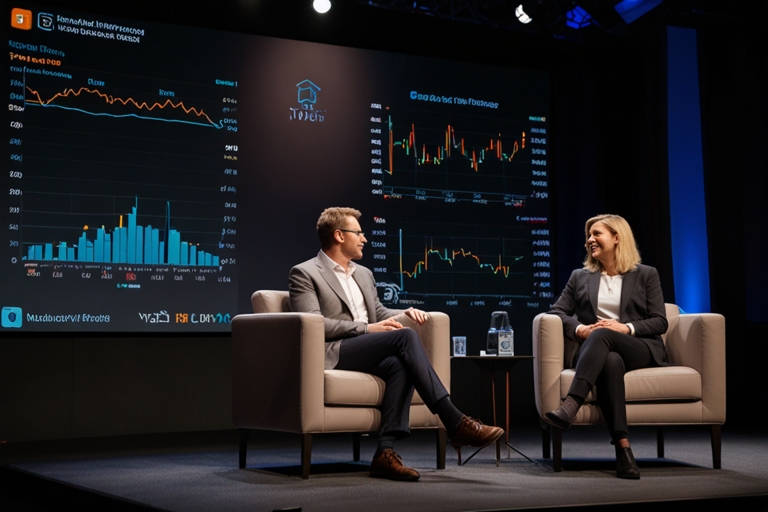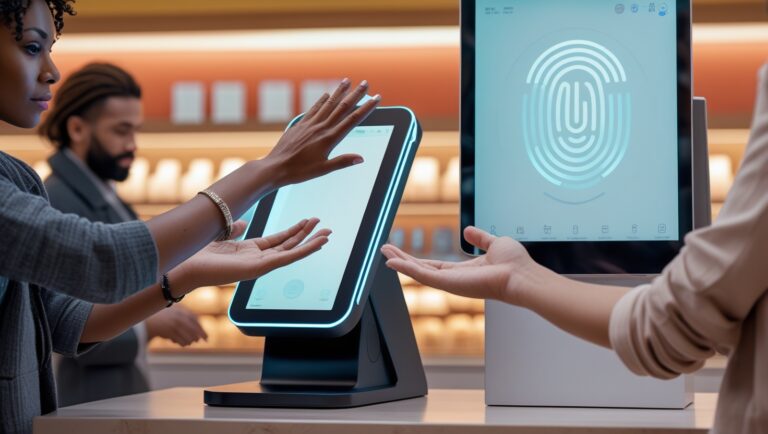
TL;DR
- With AI investment reaching $110 billion in 2024, the 2025 startup environment is flooded with capital—and competition.
- Top venture capitalists from CapitalG, Khosla Ventures, and Accel shared key insights at TechCrunch Sessions: AI.
- They emphasized founder resilience, trust-building, and speed to execution as top priorities.
- The age of perfect pitch decks is over—real relationships, defensible IP, and differentiation are critical.
- Copycats will follow success, so go-to-market strategy and user obsession matter more than ever.
AI Startup Funding in 2025: Higher Stakes, Sharper Expectations
The artificial intelligence startup boom has officially reached a fever pitch. Global VC investments in AI surpassed $110 billion in 2024, and now in 2025, early-stage startups face not only unprecedented opportunity—but sky-high investor expectations.
During the recent TechCrunch Sessions: AI, journalist Rebecca Bellan led a crucial conversation with Jill Chase (CapitalG), Kanu Gulati (Khosla Ventures), and Sara Ittelson (Accel) to unpack what today’s venture capitalists really want from AI startups across stages—from seed through Series C.
2025 VC Expectations for AI Startups
| Priority | Description | Source |
| Real Relationships > Pitch | Founders should build trust, not obsess over a perfect deck | TechCrunch Sessions: AI |
| Survive the Hype | AI markets are flooded; resilience through hype cycles is a differentiator | Accel Insights |
| Execution Speed Wins | Especially in B2B AI, fast GTM strategy and product iteration are key | Khosla Ventures |
| Defensibility Is Critical | Expect copycats—startups need deep tech, data moats, or UX edge | CapitalG |
| Agents/Automation Shape Playbook | AI agents and autonomous workflows are changing how startups operate | TechCrunch Equity Podcast |
Don’t Sell a Dream—Earn Investor Trust
A strong pitch may get attention, but in 2025, VCs are clear: it won’t get the deal. Jill Chase from CapitalG explained that the best founders aren’t selling dreams—they’re building trust.
“We’re no longer wowed by buzzwords,” Chase said. “We’re watching how founders navigate uncertainty, communicate openly, and build long-term relationships.”
Kanu Gulati of Khosla Ventures added that founders need to focus on the fundamentals, especially if they’re chasing large rounds amid market saturation.
Product-Market Fit Brings Competition Fast—Be Ready
Sara Ittelson from Accel shared a tough reality: the moment a startup proves its AI product works, competition floods in.
VCs expect founders to anticipate copycats and plan for:
- Data flywheels or proprietary models
- User lock-in features or unique experiences
- Go-to-market speed and channel depth
“If you find product-market fit in this space, prepare to be cloned,” Ittelson said. “The edge is in execution.”
Agents, Automation, and the New AI Startup Playbook
All three investors noted that autonomous agents and workflow automation are redefining startup operations. From marketing to coding to customer support, AI-native companies are scaling leaner and faster.
VCs now ask early-stage teams:
- Are you automating internal ops with AI?
- How will you adapt if your core model commoditizes?
- What’s your vision for workflow integration, not just prediction?
This AI-first thinking is a core selection filter for investors at every round.
Consumer Obsession Still Wins—Even in B2B AI
A recurring theme from the panel was that consumer-grade experiences and user-first design still dominate, even in enterprise AI.
Startups that excel in:
- User onboarding flows
- Personalized experiences
- Transparent model explanations
…are more likely to stand out in a crowded landscape. “Speed and usability are non-negotiables,” Gulati emphasized. “You can’t hide behind ‘B2B’ anymore.”
Beyond Hype: Navigating the AI Investment Cycle
The panelists urged founders to remember that AI is cyclical—it rises and falls on waves of excitement and disappointment. Surviving the dip is often what separates long-term players from fads.
“We want to see how founders behave after the hype,” Chase explained. “Do they still ship? Do they talk to users? Do they evolve?”
Being durable—not just disruptive—was repeatedly emphasized as the new founder superpower.
What Founders Should Actually Be Preparing For
Based on the panel insights, AI founders should be focused on the following strategic priorities to attract and retain VC interest:
Build a “Why Now” Narrative
- Investors are hunting for timeliness. Why does your product matter in 2025, not later?
Protect Your Moats Early
- Whether through data, UX, or community, build defensibility before traction turns to attention.
Move Quickly, Learn Faster
- Especially from seed to Series A, iteration speed can beat scale.
Plan for Post-Hype Survival
- Demonstrate how your model evolves even if LLMs become commoditized.
Stay Lean With Automation
- Use internal AI tools to stay capital efficient and show adaptability.
VC Advice in a Post-Deck World
One of the most candid takeaways from the panel was how irrelevant the traditional pitch deck has become. Today’s early-stage meetings aren’t won with slick slides—they’re won with:
- Proof of engagement
- Clarity on the problem
- Authenticity in communication
- Evidence of adaptation
Sara Ittelson put it bluntly:
“The best pitches feel like conversations, not presentations.”
Final Word: Survive First, Scale Second
For AI founders seeking VC backing in 2025, the bar is higher—but so are the rewards. With record funding levels, the room is full, but only a few teams will thrive long term.
The investors’ advice is simple but strategic: build trust, focus on users, and prepare to be copied. Survival through the hype is the new Series C milestone.






